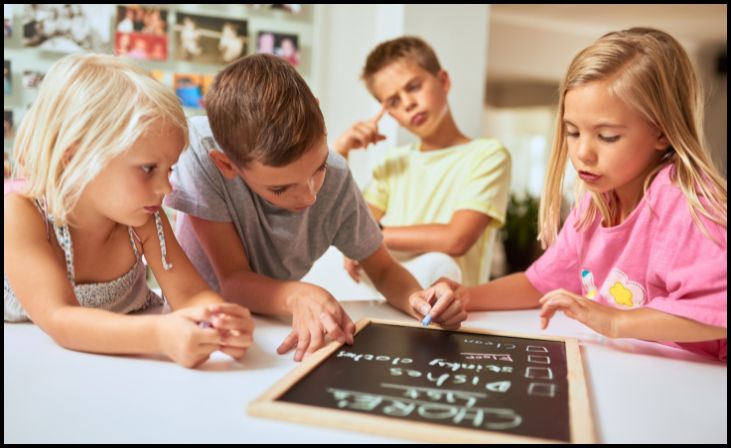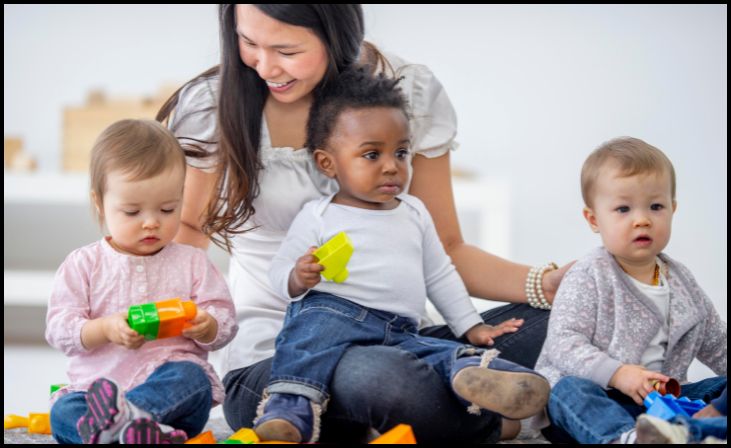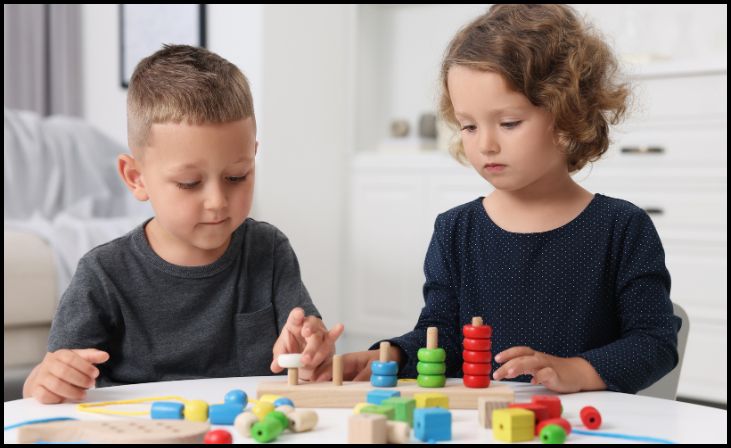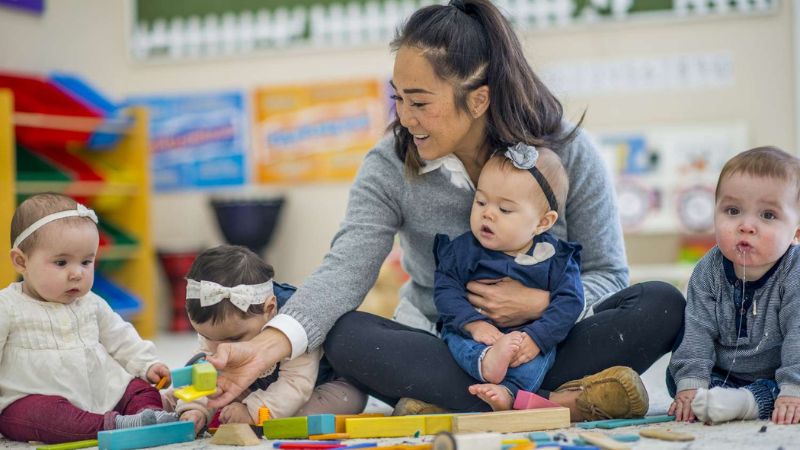Starting childcare is a significant milestone for both children and parents. It can be an emotional and challenging transition, but with the right preparation, you can help your child adapt smoothly to their new environment. Preparing at home allows you to create a familiar and supportive foundation that eases your child’s anxiety and builds their confidence. Here are nine creative ways to prepare your child at home before they start childcare.
Establish a Routine

Creating a consistent daily routine is crucial for young children as it provides a sense of security and predictability. Begin by setting regular times for waking up, meals, naps, and bedtime. Gradually align these times with the childcare schedule. Include structured playtime, storytime, and outdoor activities to mimic the childcare environment. This routine helps your child understand what to expect and makes the transition less daunting. Consistency in daily activities also fosters a sense of independence and discipline, preparing your child for the structured setting of childcare.
Encourage Socialization
Before starting childcare, it’s essential to expose your child to social interactions with other children. Arrange playdates with friends or visit local playgrounds and community centers where your child can interact with peers. These social experiences help your child develop essential skills such as sharing, taking turns, and communicating with others. By engaging in group activities, your child becomes more comfortable in social settings, reducing anxiety when starting childcare. Encouraging socialization also builds your child’s confidence and helps them form positive relationships with their future classmates.
Practice Separation
Separation anxiety is a common concern when children start childcare. To ease this, gradually practice short separations at home. Begin with brief periods where you leave the room but remain within earshot. Gradually increase the duration and distance, reassuring your child that you will return. This practice helps your child understand that separations are temporary and that you will always come back. Use positive reinforcement and praise to build their confidence. Over time, your child will become more comfortable with separations, making the transition to childcare smoother and less stressful.
Familiarize with Childcare Environment

If possible, visit the childcare center with your child before their first day. Familiarize them with the surroundings, introduce them to caregivers, and explore the play areas together. If visiting is not an option, show your child pictures or videos of the facility. Talk positively about the activities and experiences they will have at childcare. Creating a sense of familiarity helps reduce fear of the unknown and builds excitement about starting childcare. Discuss the fun aspects of the new environment, such as new toys, friends, and adventures, to create a positive association.
Read Books About Childcare
Reading books about childcare can be a comforting and educational way to prepare your child. Choose age-appropriate stories that depict positive experiences in childcare settings. Books with relatable characters and scenarios help your child understand what to expect and normalize their feelings. Reading together allows you to discuss any concerns or questions your child might have. It also provides an opportunity to reinforce positive messages about childcare. By incorporating books into your daily routine, you create a sense of excitement and curiosity about the new experience.
Develop Self-Help Skills
Encouraging independence through self-help skills is vital for your child’s confidence and adjustment in childcare. Practice tasks such as dressing, feeding, and toileting at home. Teach your child how to put on and take off their shoes, wash their hands, and use utensils. These skills not only boost their self-esteem but also make them more comfortable in the childcare environment. Provide opportunities for your child to practice these tasks daily, offering guidance and praise. Developing self-help skills empowers your child to manage daily routines independently, easing the transition to childcare.
Create a Goodbye Ritual
A consistent goodbye ritual can provide comfort and reassurance for your child. Develop a special routine that you and your child follow each time you say goodbye. This could include a hug, a special phrase, or a favorite song. The predictability of the ritual helps your child feel secure and confident that you will return. Avoid prolonged goodbyes, as they can increase anxiety. Instead, keep the ritual short and positive. Over time, this routine becomes a source of comfort, making drop-offs at childcare smoother and less stressful for both you and your child.
Role-Play Childcare Scenarios
Role-playing is an effective way to prepare your child for various situations they might encounter in childcare. Use toys and props to create scenarios such as circle time, snack time, and nap time. Act out interactions with caregivers and other children, demonstrating positive behaviors and responses. Encourage your child to participate and express their feelings. Role-playing helps your child understand routines and expectations, making them feel more prepared and confident. It also provides an opportunity to discuss any fears or concerns your child might have and address them in a supportive environment.
Build Communication Skills

Developing strong communication skills is essential for your child’s success in childcare. Encourage your child to express their needs, feelings, and preferences. Practice simple phrases they can use to communicate with caregivers and peers. Reading books, singing songs, and engaging in conversations help build vocabulary and language skills. Reinforce the importance of listening and taking turns in conversations. By building communication skills, you empower your child to express themselves effectively and navigate social interactions with confidence. This foundation is crucial for their overall development and success in childcare.
Conclusion
Preparing your child for childcare involves thoughtful planning and consistent effort. By establishing routines, encouraging socialization, practicing separations, and developing self-help and communication skills, you can ease the transition and build your child’s confidence. Familiarizing them with the childcare environment, creating goodbye rituals, reading books, and role-playing scenarios further support their emotional readiness. These creative strategies help your child embrace the new experience with excitement and resilience, ensuring a positive start to their childcare journey.




